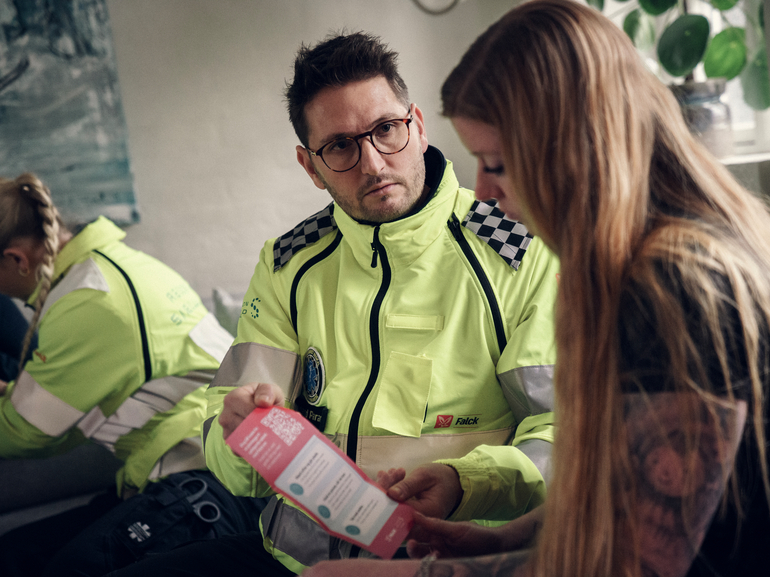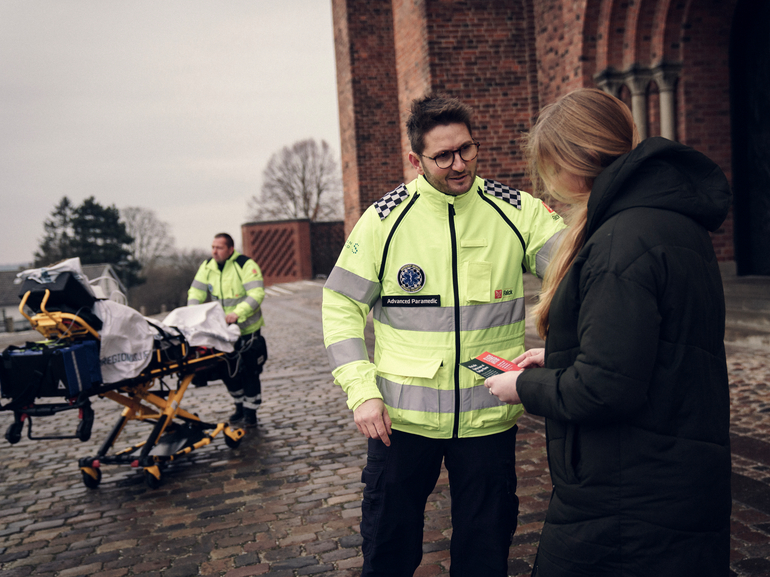In Denmark, ambulances respond to more than 200,000 cases of acute illness or accidents. From the time the emergency call is made until the ambulance arrives, relatives or other bystanders play a crucial role: they call for help, provide first aid and help the patient until the paramedics take over. This is an invaluable help that for some bystanders may unfortunately result in psychological challenges in the time after the accident.
A study conducted by Falck shows that 24 per cent of bystanders experience such serious mental challenges afterwards that in the worst case they may develop into a stress reaction and PTSD.
To prevent bystanders from developing psychological damage, psychologists and paramedics in Falck have tested a model in which the paramedics at the scene of the accident facilitate direct contact with crisis psychologists in Falck, ensuring that bystander have the opportunity to receive help and process the experience.
The initiative was tested in collaboration with Region Zealand from the ambulance unit in Roskilde, where ambulance paramedics have distributed contact cards to bystanders.
"The results of the trial period have only confirmed to us that with just a few steps we can do a lot for those who play an important role before the ambulance arrives. During an accident, the primary focus and treatment is naturally focused on the injured person, but it has been incredibly meaningful that with the initiative we have been able to take care of even more people - even after the ambulance has left,"
says Lars Dam, who is director and responsible for ambulance operations in Western Europe in Falck.
Paramedics in Falck are trained to perform psychological first aid to witnesses and those involved at the scene of the accident. But after the accident, bystanders may be affected by strong images of the accident, severe emotional fluctuations, sleep problems and struggle with guilt and self-blame. The offer for psychological help has therefore also been very well received by the bystanders who have decided to talk to a psychologist, as these eyewitness statements show:
"I had a conversation with the psychologist from the contact card. I had no expectations - it was the first time I talked to a psychologist. It helped a lot - she was able to help me put it into words. That it is natural to react. I think this is a fantastic initiative." Esben, eyewitness to accident
"It was really nice because I felt a little wrong in those days. As if it was okay that I didn't feel so much? It was great to talk to the psychologist because she informed me about different reactions, and what I could do if something changed." Josefine, eyewitness to accident
Scaling and further dissemination
The service was initially tested in Region Zealand from Falck's ambulance unit in Roskilde in the autumn of 2023. The trial period ended with good results and in total about 10 per cent of the bystanders accepted the offer of a psychologist interview.
Falck is now ready to spread the initiative to interested partners and in future new ambulance contracts.



